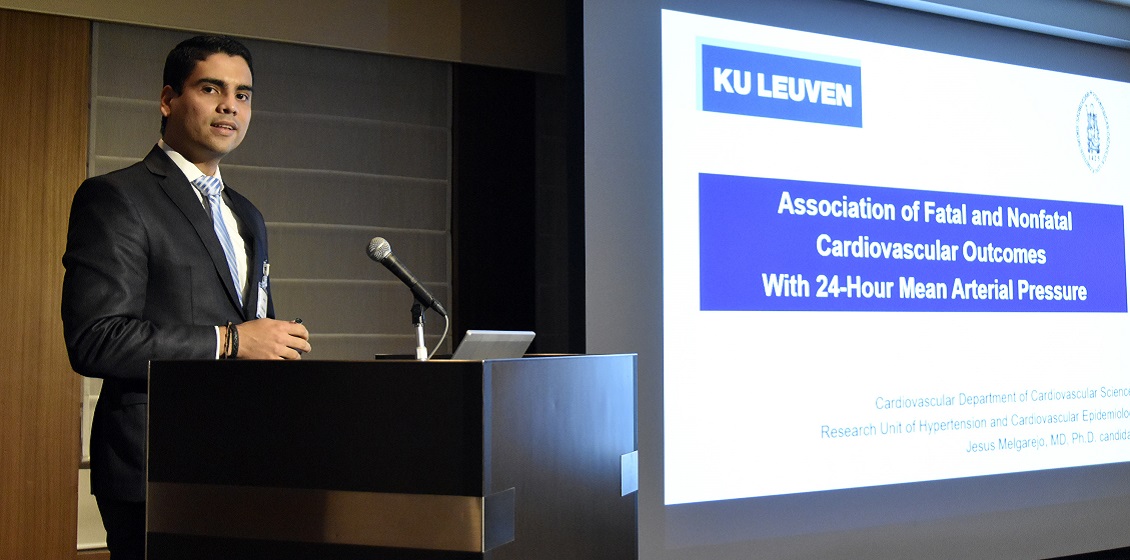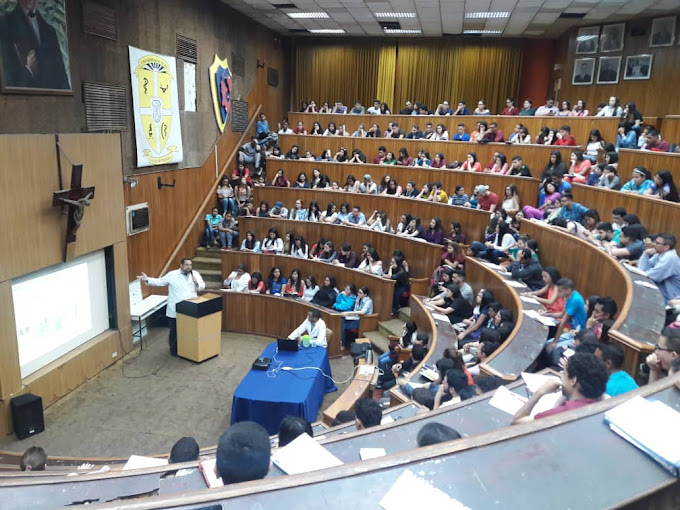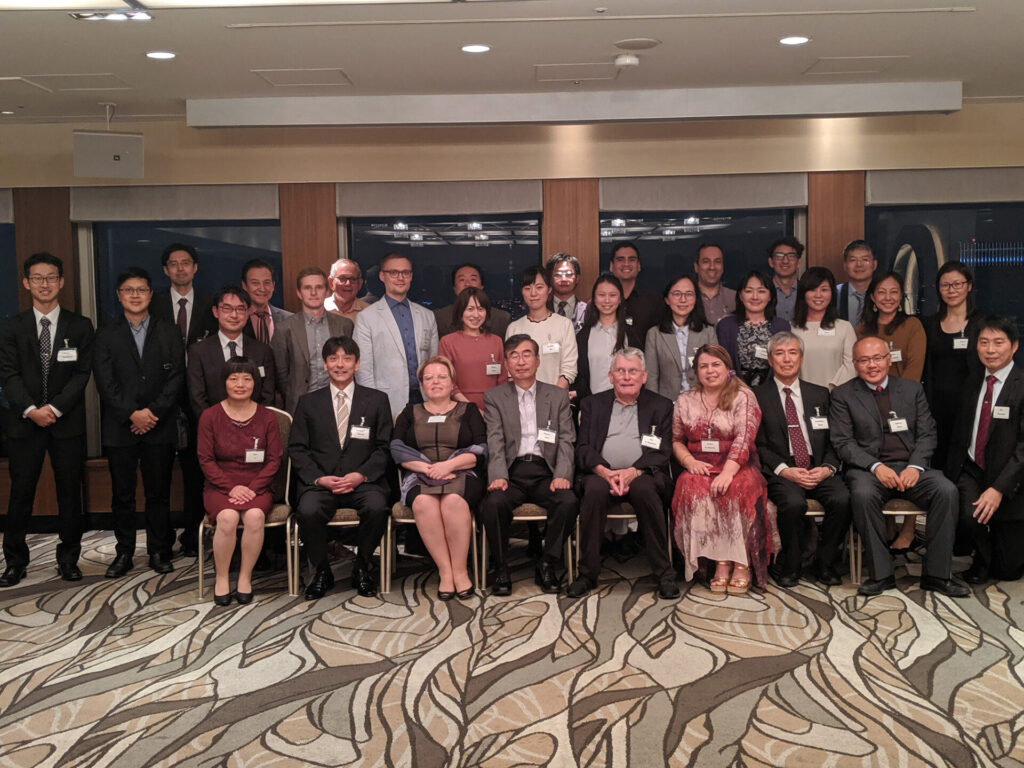He has his office in the campus of Harlingen in at the Institute of Neuroscience, just beside one of the entrance points for the many Latin American migrants to the US. Physician scientist expert on Blood Pressure and epidemiology in the areas of Cardiovascular and Neuroscience, Jesús Melgarejo, investigates the impact of preventable vascular conditions on brain health. He works in the Rio Grande Valley, Texas, which is also one of the cities in the US with very poor health regarding diabetes, obesity, Alzheimer’s. And we will later get to learn how all those dots are connected.
His parents are Colombian and had already migrated once from unsafe Colombia due to the country’s decadelong armed conflict between guerrillas, paramilitaries, and the military. Looking for a better future, the couple left for Venezuela where Jesús was born. Already at a young age, at his last year at high school, he showed special interest for research. He won a neuroscience competition for students at public high schools and was invited to be part of the lab. So even before studying at the university he was already part of a research group and learned important skills such as statistics and writing of reports and scientific articles.
Inequality and health
The first research project Jesus participated in was an international consortium of many countries that measured blood pressure for 24 hours to study cardiovascular diseases. Among those countries are Venezuela, Uruguay, Denmark, Belgium, Italy, Poland, Russia, China and Japan. It talks about the percentage of hypertension in all these regions.
“The important thing is that we look at the Human Development Index – which means access to health, education, economy, various factors. It generates a score – the lower the score – the worse the social, health and so on. We could see an association between index and prevalence of hypertension,” explains Jesús, who also recalls how this work was difficult to perform from Venezuela:
“Internet and these things – while I was working on the article with all these researchers I couldn’t send them an email or I couldn’t do my article. It was pretty painful. It was a stressful moment.”
Researching with power-cuts
In May 2018 Jesús graduated from medicine school, but the next month he left for a half-a-year scholarship in Colombia. Venezuela was already at the time living a very chaotic political, economic and humanitarian crisis.
“That period in Venezuela was one of the worst in my life. I earned 10-20 USD a month. That was all we had to support our home. I also worked as a freelancer – statistician, that helped a bit. If I would have stayed in Venezuela, then I could no longer support my parents, let alone myself towards building my future. I was going nowhere. I would have had to do a rural compulsory year where you earn 2-3 dollars a month. We could not live from that,” recalls Jesús Melgarejo.
His dad worked as a blacksmith while Jesus studied medicine, but he had had an open-heart surgery, so it was preferable for him not to continue the physical hard work. His mother worked as a seamstress. When he was finishing 4th year of medical school, Jesús took over most of the financial situation of his home. This was certainly a challenge but there has always been help coming from family members as well. Starting his doctoral studies up to date, Jesús continuous supporting his parents. But to study and do research in his homeland was really difficult for Jesús and his fellow students.
“When I left Venezuela, it was very difficult to keep up. There were barely 4-6 hours of electricity per day. We had no internet – and when we had, it was only buying mobile phone data. I found it very difficult to keep up with the output research and collaborations we were doing.”
“And it is always difficult to say to someone, this week I couldn’t finish this part of the article because I didn’t have electricity nor internet. How do you say that to someone from US or Europe? They thought it was an excuse. I was collaborating with several other people from other institutions in other parts of the world. It is different if you are on your own. I remember once I had to make a PowerPoint presentation. I was doing it by hand drawing on paper and then I went to a cyber cafe to make the presentation on a computer – and here we go, let’s do this. Other times I stayed at a friend’s house or my uncle’s. Because the mobile internet was not stable enough for a virtual meeting. I had to be creative to find a way.”
The importance of mentors
Jesús was lucky to already early meet people who believed in him, recommended him and helped him on his way to continue to study abroad and broaden his horizon – both professionally and personally. The first of such persons was Gladys Maestre from the University in Maracaibo in Venezuela. She has guided and mentored Jesús since 2009 in his professional career but also has given him valuable advice of life in and out science.
“Every person gives the best of themselves. Every person has different way of being smart. What I have seen in academy is also how networking and connections are so important, crucial. To know this kind of person who can advocate for you, it is important. I could not have achieved what I have achieved to be honest without Dra. Gladys’ help,” says Jesús who also found it a hard change when he first came to continue researching in the US:
“Every time I did an internship – in Europe and USA – I felt the difference in the academic level. I was in a place that only accepted the people that used to be the best of the best, super well prepared. And then me, having studied in a public school and being first-generation in college Latin-American coming from a humble family. Obviously, there is a wall, which hit me all the time. The only thing that kept me on my feet, was my motivation. That these people gave me the opportunity – not because of what I knew – but also because I’m a person who is motivated and wants to do something.”
Academic resilience
Jesús recognizes how the difficult time in his home country also has become a strength for him:
“It has prepared me for what I face now. It has built academic resilience. And it has helped me to stay on my feet, to keep up my motivation, and wake every day with the motivation to pursue science to advance the field and look for the better good of people” says Jesús.
In May of 2019, he began his doctoral studies in the KU Leuven and obtained his PhD in Cardiovascular Science on November 18th of 2022. The endurance and resilience he got from his life in Venezuela taught him how to face the challenges of doing a PhD in one of the elite Universities worldwide. His journey during the PhD and time in Europe boosted his career to become a better scientist but also a person. In January 17th of 2023, he started his position as an Assistant Professor of Neuroscience at the University of Texas Rio Grande Valley. In this place, Jesús continues dedicating his career to studying how blood pressure affects diseases of ageing like glaucoma, Alzheimer’s disease-related disorders, and cardiovascular complications. He focuses on how dysregulation in blood pressure affects the eyes, brain, and heart.
“There are diseases associated with longer, more frequent, and more drastic changes in blood pressure the day and night. And this can mean something bad for the structural and functional integrity of the eyes, brain, and heart. For instance, exaggerated changes in blood pressure occurring during the day can cause periods of impaired blood flow and supply to these organs because blood pressure an exaggerated blood pressure variability increases the chances of having drastic and frequent changes drops in blood pressure. Because of these drastic changes, we believe there might be an increased probability of having diseases such as glaucoma, Alzheimer’s disease-related disorders, and cardiovascular complications. There is a window opportunity for us to better understand unique aspects of these disease by looking into blood pressure over 24-hours,“ says Jesús.
Closing the research-gap in Hispanic populations
With a mind full of dreams and motivation, he hopes for instance that will allow him to understand better what happens with the brain of people with Alzheimer’s disease and related disorders.
“It is not just about giving you the pill to control your health if you for instance suffer from hypertension. There are lifestyle factors to modify such as weight, smoking, cholesterol, sugar, what you eat, walking but also social determinants of health.”
Jesús’ dream is to continue the 24-hours study in Rio Grande Valley, an area on the border of the US where most of the population is Hispanics. His work and the work of other researchers in this area have the potential to advance our understanding of vascular risk factors and Alzheimer’s disease.
“Both conditions are known to disproportionately affect Hispanics. Hispanics have more rates of vascular risk factors such as diabetes and hypertension, 1.5 higher risk compared to other populations. They also in general have fewer years of education, and poorer access to health and public transportation,” Jesús explains.
This team of researchers are still working on fully understanding this and envisions contributing to the gap in research in Hispanic populations. I met Jesús at the Lindau Nobel Laureate Meeting in Medicine and Physiology in 2023, a one-week event where some 40 Nobel Laureates were the speakers. “I feel really privileged to, like other young scientists around the world, having been able to interact and discuss science with some of the most brilliant minds in history. That gives me this additional and unique boost to continue doing science,” says Jesús.
Lise is a freelance journalist based in Latin America for more than a decade. She is a Pulitzer Grantee, works for the investigative media Danwatch and has published in media like Al Jazeera, BBC, Deutsche Welle, Danish Broadcasting Corporation, El Pais, New York Times, and Undark Magazine









